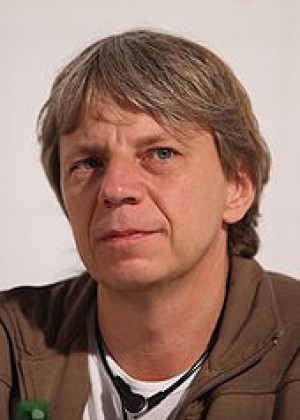Andreas Dresen grew up in a theatrical family in communist East Germany, where he also trained at the famous DEFA studios and the state Film School in Babelsberg. In unified Germany he has been at the forefront of film-making for more than two decades, winning national and international prizes and working with some of the biggest names and most significant practitioners in the industry. These include the legendary scriptwriter, Wolfgang Kohlhaase, and actress, Nadja Uhl.
Dresen’s first feature film, Stilles Land (1992, Silent Country), was set in a regional theatre as a radical director tries to organise a production of Beckett’s previously banned Waiting for Godot. The time is the autumn of 1989 as the German Democratic Republic began to crumble and action outside the theatre is more compelling and yet more absurd than any drama that can be staged inside it. The radical system change from repressive state socialism to the free-for-all of profit-driven capitalism is Dresen’s fundamental biographical experience, which gives him his take on contemporary life. It drives a number of his other films, including too his most recent Als wir träumten/ When we used to dream (2014). Through his choice of milieu and subject matter he has shown loyalty to the citizens of the former East Germany, where nearly all his work to date have been set.
Dresen is feted for his portrayal of everyday life, which he says is the most exciting subject for any film-maker, his original take on stories of love, jealousy and betrayal, and his readiness to treat difficult subjects traditionally shunned by cinema, such as erotic passion in old age (Wolke 9 / Cloud 9, 2009) or sudden terminal illness in the prime of life (Halt auf freier Strecke / Stopped in his Tracks, 2012). Among his acknowledged influences is Ken Loach, whom he has called ‘that great Briton’. While Dresen’s work may be as intensely political as Loach’s, it is never directly ideological. He makes both fiction films and documentaries and has worked in television and the theatre, directing Ӧdön von Horváth’s Kasimir und Karoline, and the opera, with a recent production of Mozart’s Don Giovanni. Music is an essential element in all work for the cinema. In Halbe Treppe (2001, released in English as Grill Point), The Seventeen Hippies who play the soundtrack gradually invade the film. Like Mike Leigh in the UK, for whom he has also professed admiration, he works with an established team of actors and technicians and sees film-making as a collective undertaking.

